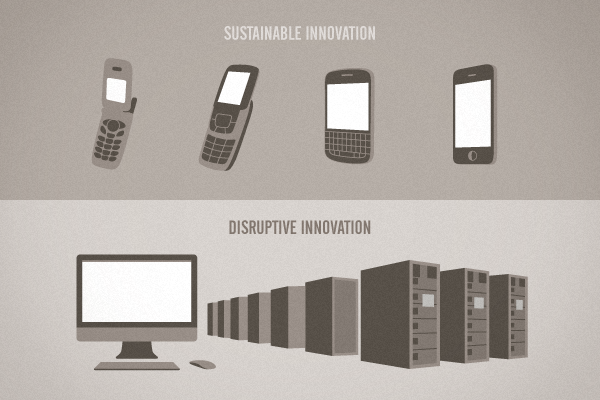The Clayton Christensen Institute For Disruptive Technology is a think tank that understands how different products can actually start small and grow into prominence in the marketplace. You can read their reasoning for why EHR is not disrupting the marketplace here. Their article explain why most EHR offerings are just a more expensive way to do what paperwork is already doing. This fact, coupled with government incentives, makes for what they call a sustaining model, where each year you are offered new, more expensive products that are hardly an improvement from the year before. In the end, it’s a mean game of horse and carrot, and not a “disruption” that improves industry output and “consumer” satisfaction (doctors in this case are the consumers, and the output is more efficient hospital operation). So yes, we are talking theory here. But, the model’s predictions do match the data–which is that hospitals have spent lots of money on software and seen paltry results.
If you’re like us, you’re probably wondering what makes an innovation “disruptive”? Disruption doesn’t equal ‘breakthrough technology.’ Instead it’s a theory explaining how companies with cheaper, lower performing technologies target non-consumers or low-end customer segments. The goal is to start small, and grow and grow so as to eventually kill larger competitors with less expensive, simpler products. The best example would be the personal computer, which disrupted the mainframe and minicomputer industry. If you’re still curious, read more about disruptive technology here.
As for our “disruptive” technology. AtlasMD, direct care’s first dedicated EMR, is getting close to its beta launch. We’re not kidding when we tell you that this browser-based software is NOT like anything on the market, it is INSANELY affordable, and we believe, will improve the way family doctors run their practices. If you haven’t yet, sign up for your free trial here.
More Reading
“Why EHRs are not (yet) disruptive” | Clayton Christensen Institute
